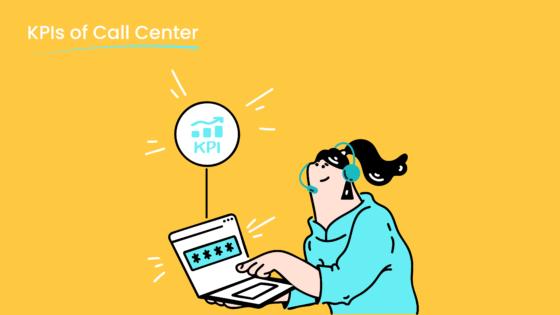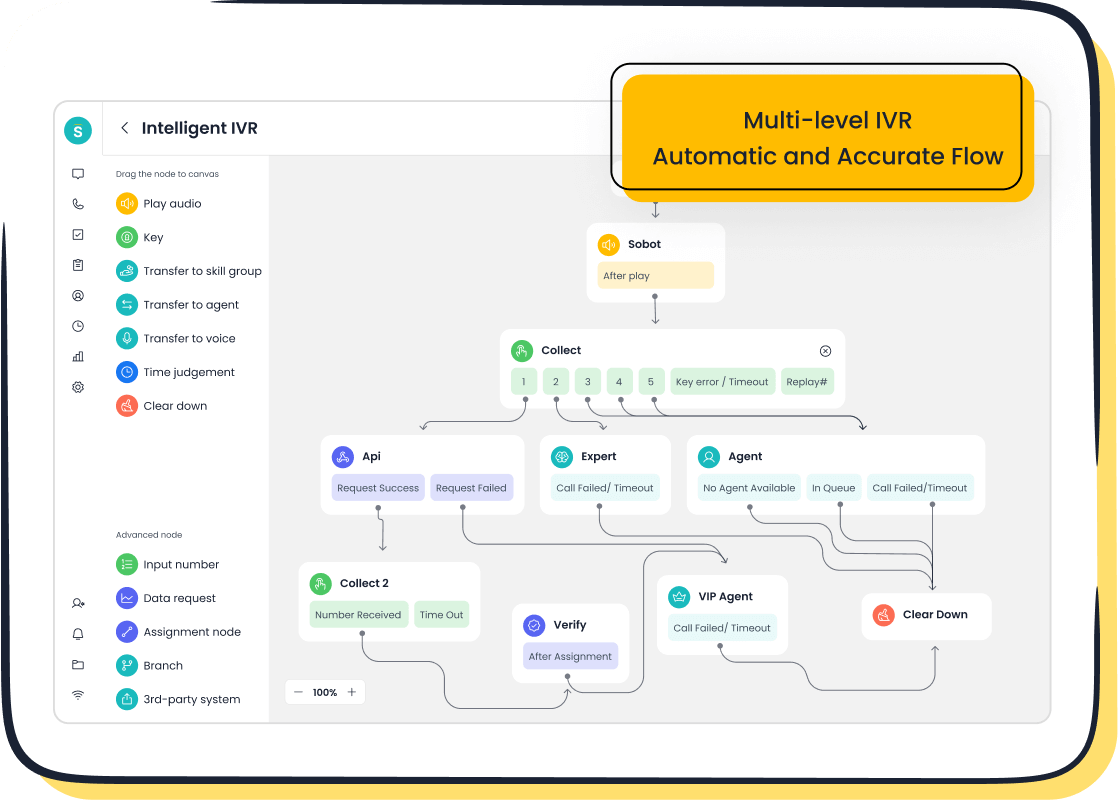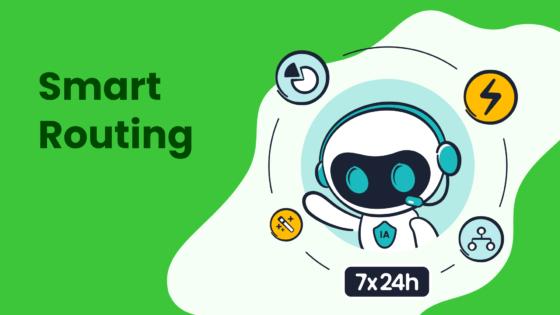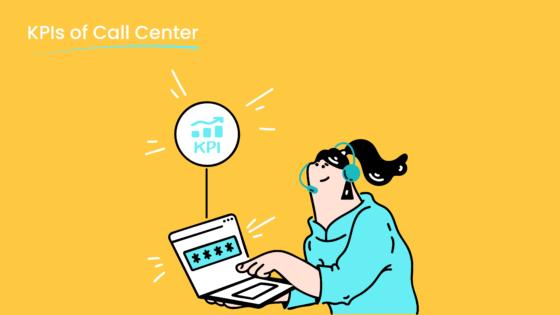Breaking Down Hard and Soft Customer Service Skills for Better Understanding

Hard and soft skills form the foundation of exceptional customer service. Hard skills for customer service, such as technical proficiency and system navigation, ensure efficiency. Soft skills, including empathy and active listening, foster trust and connection. Together, these skills for customer service create seamless and personalized experiences.
Statistics reveal their impact: 67% of consumers pay more for great service, while 71% leave after one bad experience. Companies like Sobot enhance these essential skills through advanced omnichannel solutions, empowering you to deliver respectful, effective, and memorable interactions.
Understanding Hard Skills for Customer Service

What Are Hard Skills?
Hard skills refer to the technical abilities and knowledge you need to perform specific tasks effectively. These skills are measurable and often acquired through training, education, or hands-on experience. In customer service, hard skills ensure you can handle tools, systems, and processes efficiently. For example, knowing how to navigate customer relationship management (CRM) software or using a ticketing system are essential hard skills. These abilities allow you to resolve customer issues quickly and accurately.
Unlike soft skills, which focus on interpersonal traits, hard skills are task-oriented. They form the backbone of operational efficiency in customer service roles. Mastering these skills helps you meet customer expectations and maintain high service standards.
Examples of Hard Skills in Customer Service
A list of hard skills in customer service includes technical expertise and process-driven abilities. Here are some examples of hard skills you might use:
- Proficiency in CRM tools like Salesforce or HubSpot.
- Data entry and management.
- Multilingual communication for global customer support.
- Operating live chat or chatbot systems.
- Using call center software for inbound and outbound calls.
These examples of hard skills highlight the technical foundation required to excel in customer service. For instance, multilingual communication enables you to assist diverse customers, while CRM proficiency ensures seamless data handling.
How Hard Skills Drive Efficiency in Sobot's Voice/Call Center

Sobot's Voice/Call Center demonstrates how hard skills can transform customer service efficiency. With features like intelligent IVR and AI-powered voicebots, you can streamline call routing and automate repetitive tasks. These tools require technical expertise, such as configuring workflows or analyzing call data. By mastering these hard skills, you can reduce average handle time and improve first-contact resolution rates.
For example, Sobot's unified workspace consolidates customer information, allowing you to access data instantly. This eliminates delays and enhances your ability to provide personalized support. Additionally, the platform's global number availability and time zone support ensure you can assist customers worldwide without disruptions. These capabilities showcase how hard skills, combined with advanced tools, drive operational excellence.
Exploring Soft Skills for Customer Service

What Are Soft Skills?
Soft skills refer to the personal and interpersonal abilities that help you connect with others effectively. These skills are not technical but focus on how you interact, communicate, and build relationships. In customer service, soft skills are essential for creating positive experiences and fostering trust. They include traits like empathy, active listening, and adaptability, which allow you to understand and address customer needs.
Research shows that 67% of employers prioritize soft skills over hard skills in customer service roles. This highlights their importance in ensuring customers feel valued and understood. Unlike hard skills, which are task-oriented, soft skills emphasize interpersonal competence, making them critical for building long-term customer loyalty.
Examples of Soft Skills in Customer Service
A strong list of soft skills can transform how you engage with customers. Here are some examples of soft skills that are vital in customer service:
- Empathy: Understanding and sharing the feelings of your customers.
- Active listening: Paying full attention to what customers say without interrupting.
- Patience: Remaining calm and composed, even in challenging situations.
- Adaptability: Adjusting your approach to meet diverse customer needs.
- Conflict resolution: Addressing and resolving issues effectively.
These examples of soft skills demonstrate their role in creating meaningful interactions. For instance, showing empathy can make customers feel heard and appreciated, reducing the likelihood of dissatisfaction. Active listening ensures you fully understand their concerns, leading to quicker and more accurate resolutions.
The Role of Soft Skills in Building Relationships with Sobot's Omnichannel Solution
Soft skills play a pivotal role in enhancing customer relationships, especially when paired with advanced tools like Sobot's Omnichannel Solution. This platform integrates multiple communication channels, such as email, social media, and live chat, into a unified workspace. By combining your interpersonal competence with this technology, you can deliver personalized and seamless support.
For example, when a customer reaches out via live chat, your ability to actively listen and respond empathetically can turn a routine interaction into a memorable experience. Sobot's AI-driven chatbots handle repetitive queries, freeing you to focus on complex issues that require a human touch. This balance of automation and soft skills ensures customers feel valued and supported.
Studies reveal that 96% of customers believe the quality of service impacts their loyalty to a brand. Companies excelling in customer experience grow revenues 4 to 8% above their market. Sobot's solution empowers you to leverage these insights by combining your soft skills with cutting-edge tools, ultimately driving customer satisfaction and loyalty.
Hard Skills vs. Soft Skills: Key Differences
Measurable vs. Interpersonal Traits
The difference between hard skills and soft skills lies in their nature and application. Hard skills are measurable abilities that you can quantify, such as proficiency in CRM tools or multilingual communication. These skills often involve technical expertise and are essential for performing specific tasks efficiently. For example, knowing how to operate Sobot's Voice/Call Center features like intelligent IVR or call tracking requires measurable technical knowledge.
Soft skills, on the other hand, focus on interpersonal traits. They include qualities like empathy, adaptability, and active listening. These skills help you connect with customers on a personal level, fostering trust and loyalty. While hard skills ensure operational efficiency, soft skills create meaningful interactions. Together, they form a balanced approach to customer service excellence.
Task-Oriented vs. Relationship-Oriented Approaches
Hard skills and soft skills also differ in their approach to customer service. Hard skills are task-oriented, emphasizing efficiency and precision. For instance, using Sobot's AI-powered voicebot to automate repetitive tasks showcases a task-oriented approach. This method ensures quick resolutions and reduces customer effort, a key metric for service quality.
Soft skills adopt a relationship-oriented approach, prioritizing personal connections. When you actively listen to a customer’s concerns or show empathy during a challenging situation, you build rapport and trust. Relationship-oriented cultures often focus on creating lasting bonds before addressing business matters.
- Task-oriented approaches prioritize efficiency and punctuality.
- Relationship-oriented approaches emphasize building personal connections first.
By combining these approaches, you can address customer needs effectively while fostering loyalty. Sobot’s Omnichannel Solution exemplifies this balance by integrating automation with tools that support personalized interactions across multiple channels.
How Sobot Combines Hard and Soft Skills for Customer Service Excellence

Sobot’s solutions seamlessly integrate hard skills and soft skills to deliver exceptional customer service. The Voice/Call Center equips you with tools like smart call routing and real-time monitoring, enhancing your technical capabilities. These hard skills improve metrics like SLA performance and first-contact resolution rates.
Soft skills come into play when using Sobot’s Omnichannel Solution. The unified workspace consolidates customer data, enabling you to respond empathetically and adapt to diverse needs. For example, when a customer reaches out via social media, your ability to actively listen and resolve their issue quickly can transform their experience.
The integration of hard and soft skills drives service excellence, as illustrated by key performance metrics:
| Performance Metric | Description |
|---|---|
| Customer Satisfaction (CSAT) | Measures customer satisfaction through surveys and feedback. |
| Revenue | Evaluates the correlation between high-quality service and increased sales and transactions. |
| Customer Retention | Tracks customer behavior post-interaction to assess loyalty based on service quality. |
| Customer Effort | Assesses the ease with which customers can resolve issues, identifying areas for improvement. |
| SLA Performance | Compares actual performance against service-level agreements to pinpoint areas needing enhancement. |
By leveraging Sobot’s advanced tools and combining them with interpersonal skills, you can achieve higher CSAT scores, improve customer retention, and boost revenue. This synergy ensures your service remains efficient and customer-focused, setting your business apart in competitive markets.
The Importance of Balancing Hard and Soft Skills
Enhancing Customer Satisfaction with Sobot's Solutions
Balancing hard skills and soft skills is essential for delivering exceptional customer experiences. Hard skills enable you to navigate tools and systems efficiently, while soft skills help you connect with customers on a personal level. Together, they create a foundation for customer satisfaction.

Sobot’s solutions exemplify this balance. For instance, the Voice/Call Center equips you with features like intelligent IVR and AI-powered voicebots. These tools streamline workflows and reduce average handle time, showcasing the importance of hard skills in operational efficiency. On the other hand, Sobot’s Omnichannel Solution integrates communication channels into a unified workspace, empowering you to use soft skills like empathy and active listening to build trust and rapport.
The impact of balancing these skills is evident in customer satisfaction metrics:
| Evidence Description | Impact on Customer Satisfaction |
|---|---|
| Good communication, empathy, and active listening build strong customer relationships. | Leads to happier customers, repeat business, and more brand advocates. |
| Soft skills training reduces conflict and increases customer satisfaction. | Translates to cost savings and improved profitability. |
| Training in soft skills helps employees empathize and listen actively. | Builds trust and rapport, leading to higher customer satisfaction and loyalty. |
By leveraging Sobot’s advanced tools and combining them with interpersonal competence, you can achieve higher satisfaction rates, foster loyalty, and turn customers into brand advocates.
Improving Team Collaboration and Efficiency
Balancing hard and soft skills doesn’t just benefit customers—it also enhances team collaboration and efficiency. Hard skills like data management and system navigation ensure tasks are completed accurately and on time. Soft skills like adaptability and conflict resolution foster a collaborative environment where team members support each other.
Sobot’s solutions play a pivotal role in improving collaboration. The Voice/Call Center provides real-time monitoring and analytics, enabling teams to align their efforts and meet service-level agreements. Meanwhile, the Omnichannel Solution consolidates customer data, ensuring everyone has access to the same information. This reduces misunderstandings and promotes teamwork.
Statistics highlight the benefits of balanced skills in collaboration:
| Statistic | Description |
|---|---|
| 60% of workers | Report that collaboration reduces burnout by providing mutual support. |
| 13% more productive | Happy employees are when collaboration is high, with a 72% boost in effectiveness. |
| 97% agreement | Nearly all employees and employers believe lack of collaboration undermines workplace success. |
| 12% higher performance | Diverse teams achieve this due to different perspectives fueling innovation. |
| 1.9 times more likely | Teams aligned with a shared vision are to surpass financial goals. |
By integrating Sobot’s tools into your workflow, you can foster collaboration, reduce burnout, and boost productivity. This alignment ensures your team operates efficiently and achieves shared goals.
Adapting to Diverse Customer Needs Across Channels
Customers interact with businesses through various channels, from social media to voice calls. Balancing hard skills and soft skills allows you to adapt to these diverse needs effectively. Hard skills like multilingual communication and CRM proficiency ensure you can handle technical challenges across platforms. Soft skills like patience and empathy help you address unique customer concerns.
Sobot’s Omnichannel Solution simplifies this process. Its unified workspace consolidates interactions from multiple channels, enabling you to provide seamless support. For example, when a customer switches from live chat to email, you can access their history instantly and respond with empathy and precision. This adaptability builds trust and enhances the customer experience.
The ability to adapt across channels is crucial in today’s competitive landscape. Studies show that businesses excelling in omnichannel customer service grow revenues 4 to 8% above their market. By combining your technical expertise with interpersonal competence, you can meet diverse customer needs and drive business success.
Developing Hard and Soft Skills for Customer Service Success
Tips for Strengthening Hard Skills
Improving hard skills requires a focused approach. Start by identifying the technical areas where you need growth. For example, if you’re unfamiliar with CRM tools, prioritize learning platforms like Salesforce or HubSpot. Employee training programs often include modules on system navigation and data management, which are essential for customer service efficiency.
Actively seek feedback to refine your technical abilities. Use customer satisfaction surveys to understand how your performance impacts service quality. For instance, if customers report delays in issue resolution, it may indicate a need to improve your proficiency in call center software.
Develop your knowledge about product features and customer challenges. This ensures you can provide accurate information during interactions. Sobot’s Voice/Call Center offers tools like intelligent IVR and AI-powered voicebots, which require technical expertise to configure workflows and analyze call data. Mastering these features enhances your ability to deliver efficient and personalized support.
Strategies for Enhancing Soft Skills
Soft skills training focuses on interpersonal abilities that improve customer interactions. Begin by practicing active listening. Pay attention to customer concerns without interrupting, and respond thoughtfully. Empathy is another critical skill. Try to understand the emotions behind a customer’s words to build trust and rapport.
Adaptability is key in dynamic environments. Adjust your communication style to suit different customer personalities. For example, a patient approach works well with frustrated customers, while a concise response may appeal to those seeking quick solutions.
Building a network can also enhance your soft skills. Join communities like the Serviceblazer Community to learn from peers and stay updated on trends. Sobot’s Omnichannel Solution supports soft skills training by consolidating customer data into a unified workspace. This allows you to focus on meaningful interactions rather than repetitive tasks, fostering stronger relationships.
Leveraging Sobot's Voice/Call Center for Continuous Skill Growth

Sobot’s Voice/Call Center provides an ideal platform for developing both hard and soft skills. Its intelligent IVR system lets you practice configuring call workflows, improving your technical proficiency. Features like real-time monitoring and analytics help you analyze call data, enhancing your ability to make data-driven decisions.
The platform also supports soft skills growth. Use the unified workspace to access customer information instantly, enabling empathetic and personalized responses. For example, when assisting a customer with a complex issue, your ability to combine technical expertise with active listening can transform their experience.
Sobot’s AI-powered voicebots automate repetitive tasks, freeing you to focus on interactions that require human empathy. This balance between automation and interpersonal skills ensures continuous improvement in service quality. By leveraging Sobot’s tools, you can refine your hard skills while strengthening your soft skills, driving both personal and professional growth.
Mastering both hard and soft customer service skills is essential for delivering exceptional experiences. Hard skills ensure efficiency, while soft skills build trust and loyalty. Together, they create a competitive edge in customer service.
- 56% of consumers feel businesses treat them impersonally, underscoring the need for personalized service.
- 80% of companies now compete on customer experience, as noted by Gartner.
Sobot’s solutions, like the Voice/Call Center and Omnichannel Solution, empower you to balance these skills effectively. By leveraging advanced tools and interpersonal abilities, you can enhance customer satisfaction and drive professional growth.
FAQ
What is the difference between hard and soft customer service skills?
Hard skills are technical abilities like CRM proficiency or data management. Soft skills focus on interpersonal traits like empathy and active listening. For example, using Sobot's Voice/Call Center requires hard skills, while resolving a frustrated customer's issue with patience showcases soft skills. Both are essential for success.
How can I improve my soft skills for customer service?
Practice active listening and empathy during interactions. Adapt your communication style to suit different customers. Tools like Sobot's Omnichannel Solution help by consolidating customer data, allowing you to focus on meaningful conversations instead of repetitive tasks. This fosters stronger relationships and better outcomes.
Why is balancing hard and soft skills important in customer service?
Balancing these skills ensures efficiency and builds trust. Hard skills help you navigate tools like Sobot's AI-powered voicebots, while soft skills create personal connections. Together, they enhance customer satisfaction, loyalty, and retention, driving business success in competitive markets.
How does Sobot help develop customer service skills?
Sobot offers tools like the Voice/Call Center and Omnichannel Solution. These platforms provide real-time analytics, unified workspaces, and AI-driven automation. They allow you to refine hard skills like workflow configuration and soft skills like empathy, ensuring continuous improvement in service quality.
What role do customer service skills play in business growth?
Strong customer service skills directly impact customer satisfaction and loyalty. Studies show 96% of customers base loyalty on service quality. Sobot's solutions, like its Omnichannel platform, empower you to deliver exceptional experiences, driving revenue growth and long-term success.
See Also
Excelling in Live Chat for Effective Customer Assistance
Excelling at Live Chat Within the Retail Sector
AI-Powered Customer Service Agents Transform Support Experience
Top Strategies for Effective Call Center Quality Management
Ten Strategies to Enhance Customer Satisfaction via Live Chat
